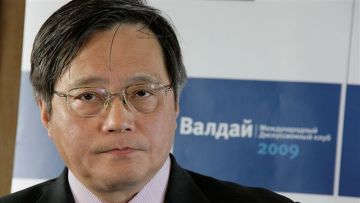Important Visit in Deepening Bilateral Cooperation
Important Visit in Deepening Bilateral Cooperation
15 March 2010
By Shaolei Feng
By FENG Shaolei (ECNU), Dean, School of Advanced International and Area Studies (SAIAS), East China Normal University; Director, Centre for Russian Studies, East China Normal University; Member of the Sino-Russian Committee of Friendship, Peace and Development; Editor-in-Chief for the core journal “Russian Studies”.
Russian Prime Minister Vladimir Putin’s first visit to Indiaon 11-12 March is a major event in Russian-Indian relations of the past four years. The significance is firstly indicated in the consolidation of bilateral relations, and this visit will have a positive effect on helping emerging market and transition economies, such as Russiaand India, to overcome the negative consequences of the financial crisis.
The volume of Russian-Indian bilateral trade has maintained a strong growth despite the global economic crisis. In 2009 it exceeded $7.5 billion and will reach $10 billion in 2010; by 2015 it is expected to climb to $20 billion. During this visit, the two countries will sign a series of cooperation agreements in such areas as nuclear power, military equipment, chemicals, satellite navigation and others. These new agreements will clearly contribute to the growth of bilateral trade. From Russia’s perspective, promoting its output of strategic technology and core areas of services in India is undoubtedly an important element of its economic recovery and growth. In India’s case, through the introduction of these advanced technologies, its authority will increase further and play a positive role in stabilizing regional security both in traditional and non-traditional areas. It is also a widespread concern in the international community that there should be stable development through cooperation in emerging and transition economies during this post-financial crisis period, when the global economic situation needs to be revived.
For China, both Russia and India are strategic partners. The current so-called strategic partnership is completely different from the confrontation within the group during the Cold War era and an effective way to adapt the geopolitical means to achieve their own interests and objectives. The core of the new strategic partnership lies in the common interests that Russia, India and China share and their objectives both for their long-term development and for global politics. From this standpoint, these three countries are happy to see not only their progress and development but also expansion in bilateral relations at a time when trilateral relations need to await new opportunities.
Regarding the famous concept described by Yevgeny Primakov in "Trilateral Partnership among Russia, China and India", it is still an important factor affecting trilateral issues. Moreover, these three countries not only overcome many difficulties, help and support each other in the post-Cold War era, greatly enhancing their mutual understanding and sharing a stand on many issues, but also make sure that their trilateral relations obtain a new impetus under the new BRIC framework.
Current trilateral relations still need to be explored. For example, experts on Russia and India are actively discussing how to establish joint ventures abroad. That is certain to become an inspiration for China. Russia, India and China are all involved in defense cooperation in spite of their different levels. We believe that through mutual efforts, the relations will gradually evolve to become more balanced and constructive. For example, it needs to be discussed how India and China, as energy consuming countries, can establish more future-oriented cooperation with Russia, an energy exporting country. As another example, after the financial crisis, there is a great need for the three countries to create risk-minimizing mechanisms in international financial and monetary cooperation. Last but not least, China, Russia and India are all members of Shanghai Cooperation Organization. How can this organization be consolidated and developed especially in the areas of security and economic cooperation? There are many initiatives and ideas that need to be implemented.
In short, we need to address our challenges through mutual cooperation, benefit and development. Our common experience shows that such expectations are justified.

